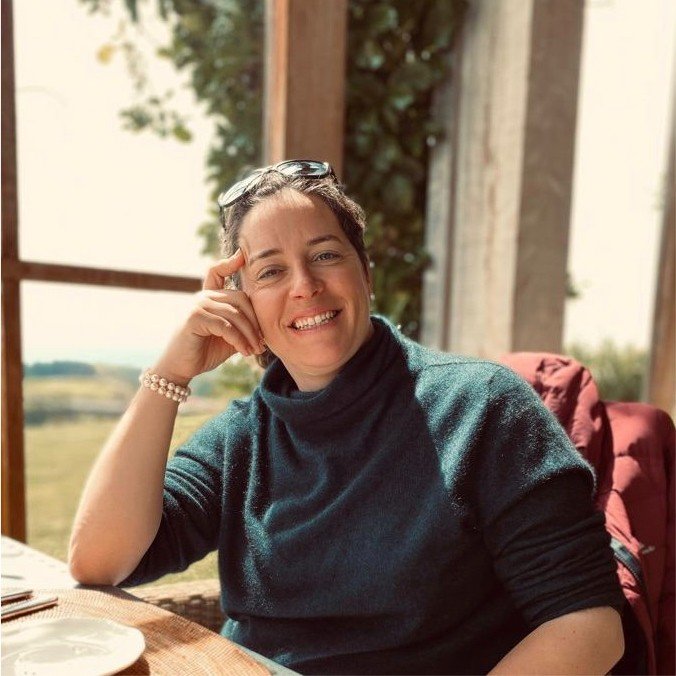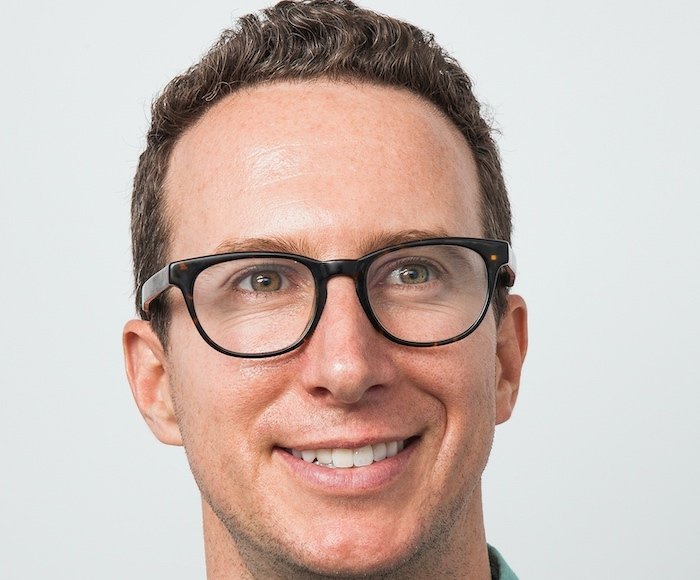Impact Snapshot
March 2025
In this Impact Snapshot, read about EHF Fellows in action creating economic, environmental and social impact, plus recent recognitions and awards they’ve received.
Fellows in action 🎬
Jeff Schlichting and Tim Derrick’s Helios Energy has secured resource consent for the 110MW Karioi solar project in Tangiwai within the Ruapehu District - a project that will generate enough clean electricity to power approximately 25,000 homes.
In a media release, Jeff (Helios Energy co-founder and Managing Director) noted this is a significant milestone for the project, and represents one of the priority solar farm developments in Helios’ portfolio.
Helios has worked closely with mana whenua Ngāti Rangi and the Ruapehu District Council to ensure the project integrates with the local environment, allowing continued grazing, preserving natural wetlands, and will be partially screened by new native vegetation. With an investment exceeding NZD$150 million, Helios aims to support the region’s economic resilience, particularly as the Ruapehu District has been affected by industrial closures and declining tourism.
Construction is expected to begin in 2026, creating jobs during development and long-term employment opportunities for locals. Helios has also committed to establishing a local partnership trust to fund sustainability, education, and energy hardship initiatives, ensuring lasting benefits for the community.
Andrew Wilkinson, through his investment firm Tiny, has invested US$66 million to acquire a 66% stake in Serato, the globally renowned DJ software company founded and headquartered in New Zealand.
In the announcement, Tiny points to Serato’s market leadership (2 million+ users worldwide), long history of growth and track record of innovation, as well as a unified vision for growth, among the ideal reasons for the acquisition.
Andrew is a strong backer of Kiwi-grown companies, with Tiny having previously invested NZ$58 million into NZ venture Letterboxd (2023).
Tiny’s investment into NZ-based company Serato looks set to help strengthen New Zealand’s creative tech industry, fueling continued innovation, and accelerating the company’s growth and position on the world stage.
Kim Aitken, founder and CEO of Truss House™, has scaled her innovative, high-performance housing system to Australia, with the construction of the first Truss Houses on Australian soil. These lightweight, prefabricated homes are designed for speed, efficiency, and affordability, with assembly times as fast as 5.5 minutes per portal frame.
Driven by a mission to make housing both accessible and sustainable, Kim is tackling affordability, creating jobs, upskilling tradespeople and apprentices, and reducing environmental impact through well-insulated, energy-efficient designs.
With patents granted in multiple countries, her work is paving the way for a scalable, community-centred solution to the global housing crisis.
Erik Zydervelt, co-founder and CEO of Mevo, is expanding access to electric vehicles through a new partnership with Uber, making it easier for rideshare and delivery drivers to go electric.
Mevo Subscribe, a flexible weekly rental model, now offers Uber drivers discounted EV access without long-term commitments, with the aim of helping to remove financial barriers and provide a more accessible pathway to EV adoption. By growing its network and increasing the availability of shared EVs, Mevo continues to support New Zealanders in reducing reliance on private vehicle ownership and lowering transport emissions.
Erik commented on the partnership with Uber, saying: “This partnership will expand our network, our offering, allowing us to better serve New Zealand on the shared path to a regenerative future.”
Dr Daniel Price is mapping safe routes across the Ross Ice Shelf, using cutting-edge technology to support scientific exploration in Antarctica. His work is critical for ensuring researchers can safely access remote areas to study climate change, ice dynamics, and the future of our planet.
A recent RNZ podcast features Daniel’s insights alongside archival recordings of Sir Edmund Hillary reflecting on his historic Trans-Antarctic Expedition, which first established Scott Base. While the challenges of navigating this frozen landscape remain, the tools and technology have evolved, allowing for greater precision and safety. By charting these pathways, Daniel is helping to safeguard Antarctic research for generations to come.
Listen to the podcast or read the RNZ news article to learn more about Daniel’s crucial work supporting scientific exploration in Antarctica.
Aaron McDonald, co-founder of Futureverse, continues to push the boundaries of AI and metaverse technology with major advancements and global recognition.
Futureverse has released Altered State, its second foundational AI model, designed for generative 3D asset creation. The state-of-the-art model enables the seamless production of high-quality, game-ready 3D meshes, complete with textures, auto-rigging, and animation - placing it among the top three AI models globally for this application. Following the success of its generative music model, JEN, Altered State represents another milestone in democratising content creation for immersive digital experiences.
Futureverse’s groundbreaking work has also been recognised on Fast Company’s Most Innovative Companies of 2025 list, highlighting its contributions to AI-driven entertainment, gaming, and the open metaverse. The listing recognises Futureverse’s work on JEN, the Readyverse (developed with Ready Player One author Ernest Cline), and collaborations with brands like Reebok. Through these initiatives, Futureverse is shaping the future of interactive entertainment by blending AI with virtual world-building, metaverse accessibility, and user-generated creativity.
Beyond Futureverse, Aaron’s second NetX Fund portfolio company Blackbird.AI has also been named one of Fast Company’s Most Innovative Companies for 2025 in the Applied AI category. Blackbird.AI specialises in AI-driven narrative analysis, deepfake detection, and risk intelligence - helping organisations proactively combat misinformation and narrative attacks. This recognition highlights Aaron’s commitment to investing in cutting-edge AI solutions that drive real-world impact.
Faumuina Felolini Maria Tafuna’i, founder of Flying Geese, was recently featured in an article by Chris Lynch highlighting her work with the waka hourua Hinemoana, in partnership with Te Toki Voyaging Trust and mana whenua.
Returning to the South Island, Hinemoana is helping to strengthen cultural identity, leadership, and mental resilience through traditional wayfinding. The Wayfinding for Life programme, which has already reached over 650 rangatahi (young people) and is oversubscribed for 2025, teaches young people to navigate both the ocean and life’s challenges, integrating Māori and Pacific knowledge with suicide prevention strategies.
The voyage also supports the development of new Māori and Pacific language resources, ensuring the preservation of indigenous knowledge for future generations.
Cameron Smith, founder of Take2, is opening doors for second-chance learners by connecting them with industry-leading organisations and equipping them with real-world skills.
Take2, which provides tech training and employment pathways for formerly incarcerated individuals, has partnered with Xero through a new mentorship programme, connecting students with industry professionals to sharpen their technical skills and navigate the realities of working in tech. This follows a recent visit to Xero, where students gained insights into the company’s culture and values - made even more impactful by seeing a Take2 graduate now working there, proving the programme’s success in creating real career opportunities.
Fellow EHF Fellow Sasha Lockley from Money Sweetspot also shared valuable financial advice with Take2 students, challenging the stigma around debt and offering practical solutions for financial stability.
Take2’s impact has been recognised, with the programme recently nominated for the NZ Hi-Tech Awards in the ‘Best Contribution to the Tech Sector’ category.
Mark Bregman, through Quidnet Ventures Fund I, is driving investment into Kiwi innovation, supporting 21 high-potential New Zealand startups - including several led by EHF Fellows.
With the fund on track for top-quartile returns, Mark is gearing up to close it to new investors and launch Fund II, which will be 4-5 times larger, scaling the impact even further.
Looking ahead, Mark plans to establish a US-based NZ-focused growth fund in 2026 to help early-stage Kiwi companies expand globally.
Through this, Mark is helping to strengthen New Zealand’s startup ecosystem, providing the capital and support needed to transform local innovation into global success.
Jeffrey Paine has shared his insights on a shift he has seen in venture capital: the rise of the ‘tinkerer VC’. Unlike traditional investors focused purely on capital, these VCs are hands-on builders, bringing technical expertise, product strategy, and operational support to startups.
In a short thought leadership piece, Jeffrey argues that as startups face economic pressures and complex technologies, founders need more than just capital - they need investors who truly understand their challenges. He comments that technical fluency is no longer optional for VCs; those who build, specialise in high-growth sectors like AI and climate tech, and offer hands-on expertise will create the most value.
By sharing these insights, Jeffrey is helping shape the future of venture capital, driving a shift toward smarter, more engaged investing - one that prioritises innovation, collaboration, and long-term impact.
Ruth Martin was selected as a UN Women participant for the 69th Commission on the Status of Women, the world’s largest policy-making forum dedicated to gender equality and women’s empowerment. The theme, ‘For All Women and Girls - Equality. Rights. Empowerment’, highlights the urgent need for collective action in advancing gender equity worldwide. Ruth’s participation provides an opportunity to contribute to global discussions, shape policies, and drive meaningful change in the fight for women's rights.
Alimentary Systems, co-founded by Matthew Jackson and Harmaan Madon, has been nominated for the Oceania regional round of the Global Startup Awards Edition 11, recognising their groundbreaking waste-to-energy technology that is transforming sustainability.
Their system generates 400% more renewable energy than conventional methods, drastically cuts methane and nitrous oxide emissions, and recaptures vital nutrients for reuse as fertiliser - transforming waste into an impactful climate solution.
This nomination recognises Matthew and Harmaan’s role in leading clean energy and accelerating the shift toward a more regenerative, sustainable future.
Sasha Lockley, co-founder of Money Sweetspot, spoke to Stuff about how she is working to redefine debt management in Aotearoa NZ. Initially focused on lending, the fintech startup now helps Kiwis take control of their finances through education, strategic debt management, and partnerships.
In the article, Sasha says that a key direction for Money Sweetspot this year is to partner strategically with businesses and membership organisations. Money Sweetspot recently ran a pilot programme with a major insurer, which wanted to understand why customers were missing or cancelling insurance policies, suspecting it was due to the juggle of debt.
Sasha is also breaking the silence on business struggles, advocating for open conversations about failure, resilience, and financial literacy. As part of Fintech Lab 2025, she’s scaling Money Sweetspot’s impact, ensuring more people and businesses can break free from debt and thrive.
Steven Moe, as Chair of Community Finance, has played a role in securing a major win for social housing, with the Government announcing $150 million in new lending facilities to support the Community Housing Provider (CHP) sector.
This initiative, driven by Community Finance’s newly launched Community Housing Funding Agency, will unlock lower-cost financing, allowing CHPs to scale up and deliver more warm, dry homes to those in need. The aim is to level the playing field between CHPs and Kāinga Ora, so not only expanding social housing but also supporting broader affordable housing initiatives - tackling one of New Zealand’s most pressing challenges.
Elizabeth McNaughton latest ‘Disastrous’ podcast episode features Hon Kiri Allan, where they talk about crisis communication and disaster response. They discuss managing public messaging during major events like the Whakaari eruption, Christchurch mosque attack, COVID, and Cyclone Gabrielle.
The conversation highlights the importance of Mātauranga Māori (Māori knowledge) in disaster response and the systemic changes needed for a more climate-resilient Aotearoa.
By providing a platform where experts can share their insights, Elizabeth is helping to contribute to a broader understanding of effective crisis leadership and the role of indigenous knowledge in building resilience.
Dylan Field, co-founder & CEO of Figma, recently joined Y Combinator’s President & CEO Garry Tan on a podcast to discuss the evolving role of design in the age of AI.
Dylan emphasised that design isn’t just about function - it’s about how things work, and as AI advances, human judgement, taste, and creativity will be more important than ever.
Reflecting on Figma’s early challenges and breakthroughs, Dylan shared insights on how he believes his team revolutionised collaboration between designers and engineers. His conversation highlights the growing impact of design and craft in shaping the future of software.
Simone Woodland, co-founder of Mohua Ventures, is leading the Tākaka Co-housing project in Golden Bay, an innovative approach to addressing the housing crisis.
In a recent interview with RNZ's Jesse Mulligan, she discussed how co-housing fosters sustainable living and community cohesion. With the first neighborhood fully occupied, plans are underway for an additional 18-home community, offering a potential model for alleviating housing shortages.
Tanner Hackett, CEO of Counterpart, recently announced the launch of Agentic Insurance, an AI-powered platform aimed at transforming the management and professional liability insurance industry.
By leveraging AI-driven insights and automation, Counterpart is already helping brokers, policyholders, and carriers navigate an increasingly complex landscape with greater efficiency and foresight.
Through this innovation, Tanner and Counterpart are driving a major shift toward more proactive, AI-integrated insurance services that look set to shape the future of the industry.
*Images have been provided by Fellows or sourced from the Internet. EHF does not claim to own the images.




















